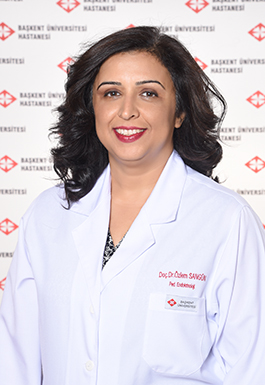What is Pediatric Endocrinology?
Hormones are substances released into circulation from various glands, crucial for the regular functioning of our body, generally composed of proteins and glycoproteins. Hormones are essential for the correct operation and development of many of the body's functions. For example, a child's normal growth is directly related to hormones.
The science of endocrinology deals with problems and diseases related to hormones and the glands that secrete them. Pediatric endocrinology focuses on babies, children, and adolescents from the newborn period up to 18 years old and involves:
- Growth delays
- Short stature
- Precocious puberty
- Delayed puberty
- Diabetes (diabetes mellitus)
- Hypoglycemia (low blood sugar)
- Obesity
- Goiter and thyroid gland diseases (hypothyroidism-hyperthyroidism)
- Disorders of sexual development
- Adrenal gland diseases
- Menstrual irregularities
- Excessive hair growth
- Pituitary gland diseases
- Turner syndrome
- Diseases related to vitamin D
- Disorders related to calcium and phosphorus metabolism
- Various bone diseases, including rickets
- Diagnosis, treatment, and follow-up of endocrinological problems.
Children cannot be considered small adults as they are in a continuous state of growth and development. They have many physiological and psychological features that differ from adults. Early endocrine problems in children, if not treated promptly, can lead to serious adverse effects later in life. Endocrine disorders and hormonal problems in children must be followed up and treated by a pediatric endocrinology specialist.
This information has been utilized from a brochure related to the subject by the American Academy of Pediatrics.
